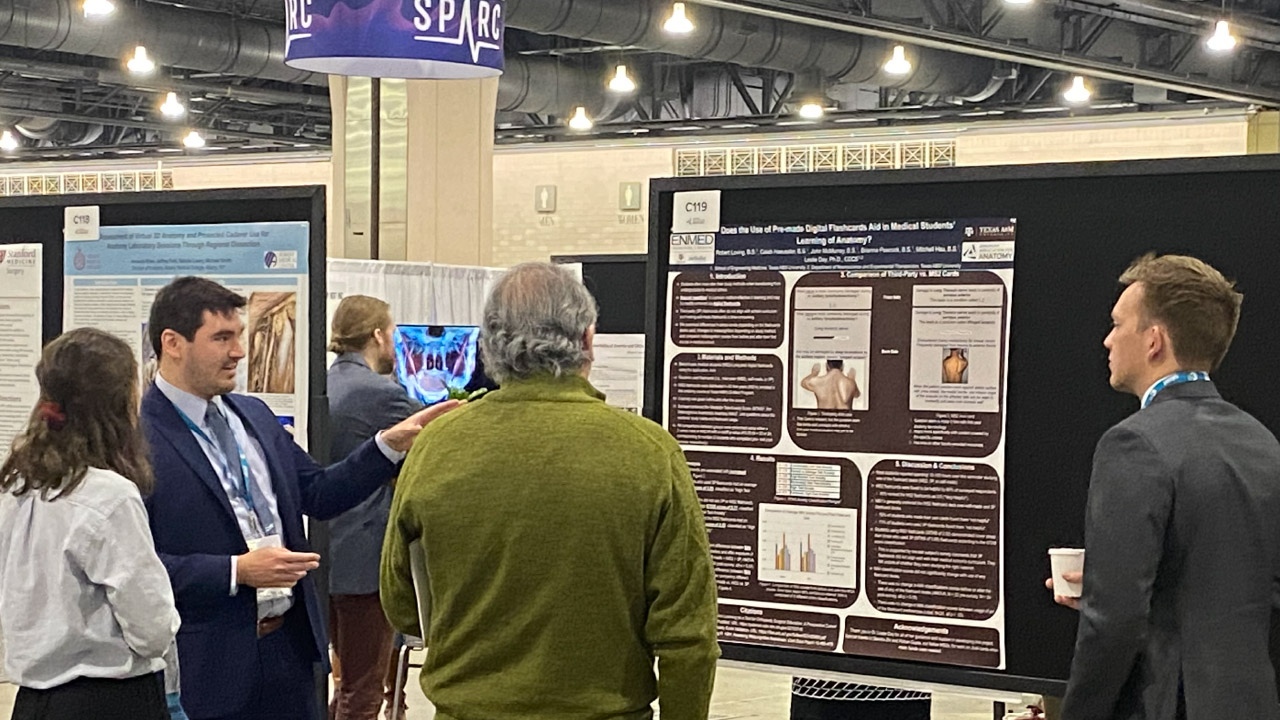
Texas A&M University School of Engineering Medicine (EnMed) first-year students Hannah Bass and Alex Ramos had their peer-reviewed abstracts accepted for the International Association of Medical Science Educators (IAMSE) annual conference scheduled for June 2022 in Denver.
“Our EnMed students are producing exceptional work,” says Ian V. J. Murray, Ph.D., instructional associate professor. “Not only are our students learning, but they are making valuable contributions to the body of knowledge that will be of importance to future students, physicians and health professionals.”
Bass’ research, titled “Evaluation of Clinical Reasoning from Novices to Experts Using the Illness Script Method: A Pilot Study,” quantifies the clinical reasoning skills using a modified script concordance test. The test converts difficult to measure clinical reasoning skills into a quantifiable demonstrable activity and compares the concordance between novice (students) and experts (clinicians). Still, the test potentially allows students to develop and evaluate their clinical illness scripts earlier in pre-clerkship training.
Ramos’ study, “Student-Contributed Content for Experiential Active Learning: A Pilot Study,” involves prototyping teaching materials within a small group of students and faculty. This quality control of the activity and collaboration between faculty and students allows for the final learning activity to identify and fill knowledge gaps. Such prototyping can increase faculty adoption of innovative teaching methods, such as using non-medical devices to explain difficult concepts in medical physiology. Researchers piloted a prototype using an electrocardiogram and pulse oximetry device for teaching cardiovascular physiology concepts.

